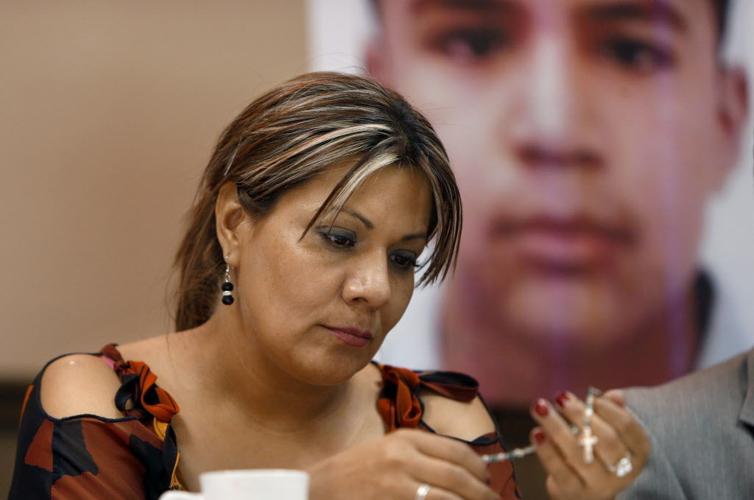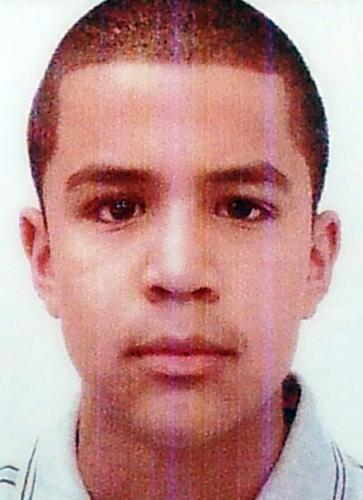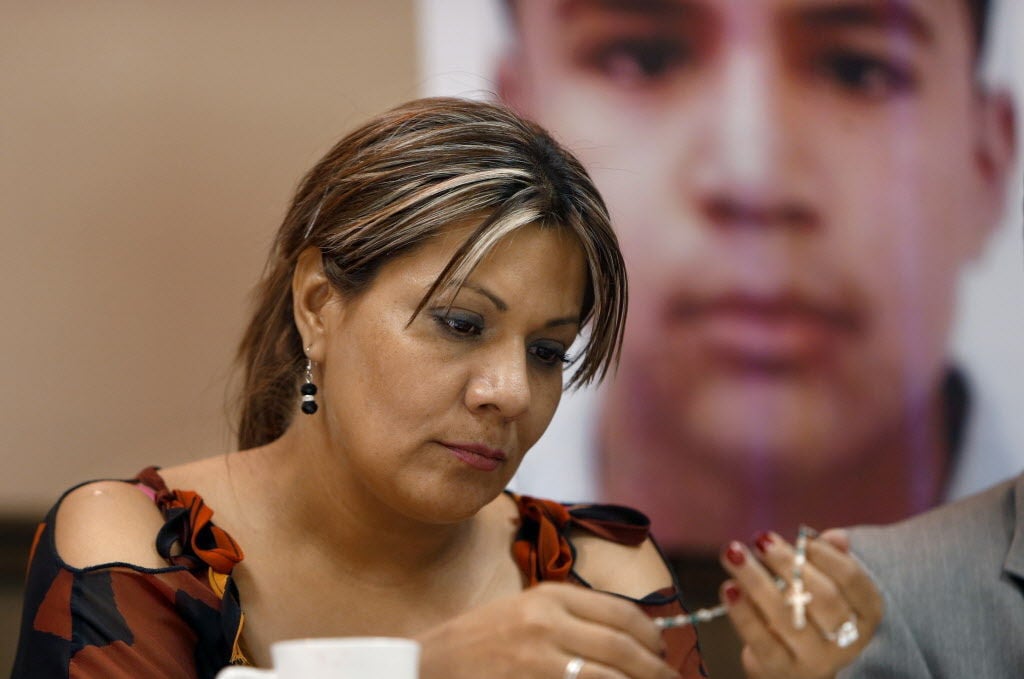PHOENIX — The U.S. Supreme Court could decide as early as Monday, June 26, whether the mother of a Mexican national can sue the Border Patrol agent who shot her son through the Nogales border fence.
Strictly speaking, the claim by Araceli Rodriguez is not before the nation’s high court. In fact, the 9th Circuit Court of Appeals has yet to rule on her claim.
But the appellate judges said they won’t do that until the Supreme Court decides a similar case out of Texas where a Border Patrol agent in 2010 shot and killed a Mexican teen playing in a culvert that separates El Paso, Texas, from Juarez, Mexico.
The 5th Circuit Court of Appeals ruled last year the parents cannot pursue their claim against Jesus Mesa Jr. because the boy, Sergio Hernandez, was a Mexican citizen “who was on Mexican soil at the time he was shot.” It is that case in which the high court heard arguments in February and is expected to rule before the court’s term ends at the end of this month.
Appellate Judge Milan Smith Jr. said the 9th Circuit Court hearing Rodriguez’s lawsuit will be bound by whatever the Supreme Court rules.
The Arizona case involves 16-year-old Jose Antonio Elena Rodriguez.
There is no question that Border Patrol Agent Lonnie Swartz fired the shots in 2012 that resulted in his death just across the border in Nogales, Sonora. An autopsy showed 10 shots entering the youth’s body from the back.
Swartz, who faces separate criminal charges of second-degree murder, contends the boy was throwing rocks across the border, a contention his family denies.
What is at issue is whether there is a legal remedy for the boy’s mother in U.S. courts for what amounts to a wrongful death lawsuit. In essence, the family is charging that Swartz violated Elena Rodriguez’ Fourth Amendment rights against illegal search and seizure, a protection that in this context includes wrongful death.
During legal arguments last year, Sean Chapman, Swartz’s attorney, pointed out the boy died in Mexico. And Chapman said he had no “significant ties” to the United States, paid no taxes nor assumed no “societal obligations.”
He did acknowledged the boy’s grandmother, a U.S. resident, did go to Mexico to take care of the boy from time to time. But Chapman said that’s not enough to extend the protections of the U.S. Constitution to the boy. And he said there is no U.S. Supreme Court case to the contrary.
But appellate Judge Andrew Kleinfeld told Chapman that using that standard raises serious questions.
“Could any policeman of any type imagine that he has the right to kill people arbitrarily, whether they’re in America or over the border?” he asked.
“I just can’t imagine the Supreme Court saying, ‘Well, since we didn’t have a case directly on point yet, a policeman wouldn’t have know he can’t take arbitrary potshots at Mexicans.’”
The youth’s mother is being represented by Lee Gelernt of the American Civil Liberties Union.
He acknowledged that the boy was not in the United States when shot in 2012, nor had he just fled over the fence. In fact, there was no evidence the boy had ever even been in this country or that he wanted to live in this country.
But Gelernt told the judges all that is legally irrelevant. “We don’t think you need to want to live in the U.S. to not be shot across the border,” he said.
Potentially more significant, Gelernt warned the three-judge panel it would set a bad precedent to allow Swartz — and anyone else who fires shots across the border — to escape civil liability.
He pointed out that the boy was walking along Calle Internacional, a major street in Nogales, Sonora, which runs parallel and adjacent to the border fence.
“This is a community that has to walk along this street all the time,” Gelernt said. He said their right against being shot by a federal employee with a government firearm should not be dependent on having some contact with the United States, like asking for health-care benefits.
“They’re just saying that they don’t want to be shot when they walk to the store or go to the doctor along the border, which it’s inescapable that they have to do,” Gelernt told the judges. “They cannot be asked to have to assume the risk of being shot every time they walk along the main thoroughfare.”
While the U.S. Department of Justice is pursuing criminal charges against Swartz, the agency has sided with him on the question of civil liability. Assistant Attorney General Henry Whitaker told the court the location of the shooting, coupled with the boy’s lack of contact with this country, means federal courts have no jurisdiction.
Kleinfeld said, though, that ignores a critical fact.
“Every bit of the policeman’s conduct took place within the United States,” the judge said.
But Whitaker said that does not matter. “I don’t think the fact the shooting occurred on U.S. land means that all the conduct occurred within the United States,” he responded.
In an earlier hearing, U.S. District Court Judge Raner Collins ruled the boy was entitled to protections under the Fourth Amendment. Collins also concluded Swartz is not entitled to claim qualified immunity for his actions, particularly as the agent could not have known at the time of the shooting that the victim was not a citizen.







